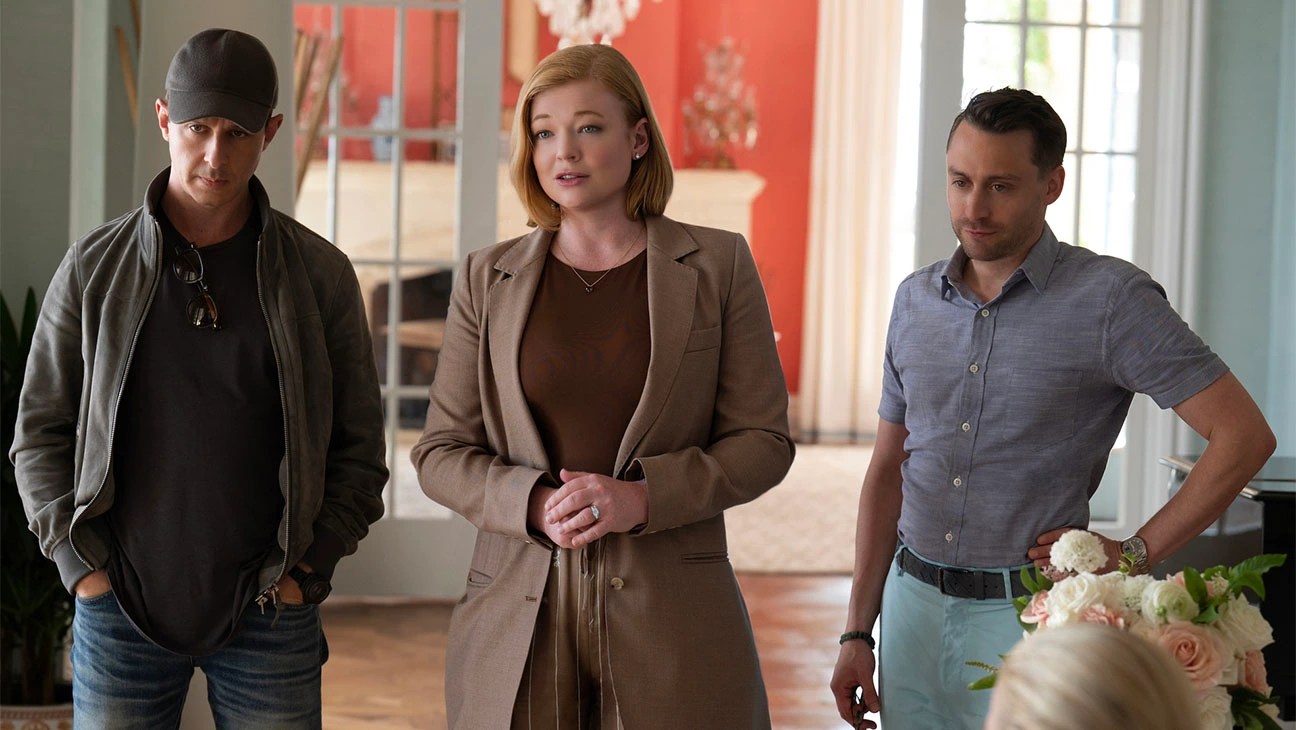‘Succession’ Is Ending With Season 4. Good.

After four seasons on HBO, the fraught saga of the Roy family is coming to an end. Succession creator Jesse Armstrong revealed that the upcoming fourth season of the hit series, which premieres on March 26, will be its last—and that’s a good thing. It’s not often that a showrunner has an ending in mind for their series, especially in the post-prestige era of Peak TV. And as Armstrong himself concedes, the title of the series is a “promise” to viewers; i.e., who will Papa Roy choose as his best and most favoritest boy?
After all, the season 3 finale of Succession made it abundantly clear that, despite her shrewd business tactics and incredible collection of power suits, Shiv (Sarah Snook) lacks the male biology her father seemingly requires of his successor. In any case, the New Yorker‘s feature-length interview with Jesse Armstrong is a great read that gets right down to how and why he decided to end Succession with season 4:
I got together with a few of my fellow-writers before we started the writing of Season 4, in about November, December, 2021, and I sort of said, “Look, I think this maybe should be it. But what do you think?” And we played out various scenarios: We could do a couple of short seasons, or two more seasons. Or we could go on for ages and turn the show into something rather different, and be a more rangy, freewheeling kind of fun show, where there would be good weeks and bad weeks. Or we could do something a bit more muscular and complete, and go out sort of strong. And that was definitely always my preference.
Succession is riveting, but the story can’t—and shouldn’t—be endlessly compelling. It’s a Shakespearean saga about Logan Roy (Brian Cox), the head of a conservative media empire, and the adult Roy children who are all vying to take his place when he retires (or dies, whichever comes first). Like contestants on The Bachelor, each of the Roy children has their own pathology defined by parental trauma—mostly emotional abuse and neglect cradled in unimaginable wealth and gross power. It’s a truly deranged dark comedy heightened by economic storytelling, brazen performances, and editing that underscores the sharp writing Armstrong is known for (see also: Peep Show, In the Loop).
It’s not exactly the sort of tone or even story that can be sustained in the long term. Besides, how many more seasons of headlines about Jeremy Strong’s “method acting” can we take? We get it, the guy’s weird about his job. And we really must stop asking Brian Cox for his opinion on literally everything. I love his acting, I don’t need to know his thoughts on how we’re being unfair to J.K. Rowling.
Something that sticks out in Armstrong’s interview is his description of Succession hypothetically becoming a “more rangy, freewheeling kind of fun show” with “good weeks and bad weeks.” That could accurately describe most modern TV series in the 2010s and 2020s, as streaming, content generation, and algorithms have overtaken media production. It’s a time when you either get canceled after one season or live long enough to wander aimlessly through seven or eight seasons until someone finally puts you out of your misery (though not before rummaging through the pockets of your still-tepid corpse to find an excuse for a spinoff or two).
There are probably older and maybe even better examples, but LOST feels like the modern ur-example of a freewheeling show with no preconceived ending. The last half of the series grew increasingly divisive among fans and critics, as it became more and more apparent that series showrunners Damon Lindelof and Carlton Cuse didn’t exactly know where the show was heading—a fact they’ve since acknowledged, citing ABC’s demand to continue the series after season 3. It’s hardly a coincidence that Lindelof’s shows since then—Watchmen and The Leftovers, both for HBO—were conceived as finite stories.
You could fill an entire Netflix category with the sort of shows Armstrong doesn’t want Succession to become: Shameless, How I Met Your Mother, Riverdale, Dexter, The Walking Dead, and on and on. The Handmaid’s Tale and Game of Thrones, two shows that extended beyond their respective source material, have similarly struggled with sustaining narrative tension (or even just keeping their characters consistent from one season to the next).
Meanwhile, shows created with endings in mind—Mad Men, Breaking Bad, and The Good Place, to name a few—are exceedingly rare. Having a preconceived endgame isn’t necessary for a show to be great (the creators of Halt and Catch Fire were never certain of the show’s future beyond each season), but it doesn’t hurt.
Armstrong’s announcement of Succession‘s end isn’t terribly surprising, but it is a little more notable in light of another interview with a showrunner that was published this week: Speaking with Total Film, Jon Favreau revealed that he doesn’t have an endgame in mind for The Mandalorian, which is set to debut its third season on March 1. “[T]hough we’ll have resolution over time with these characters … it’s not like there’s a finale that we’re building to that I have in mind,” Favreau said of his plans for the series. “Quite the contrary. I love for these stories to go on and on.”
That’s the thing about stories, though. They do kind of need to end at some point. Or else they’re just lost.
(featured image: HBO)
Have a tip we should know? tips@themarysue.com